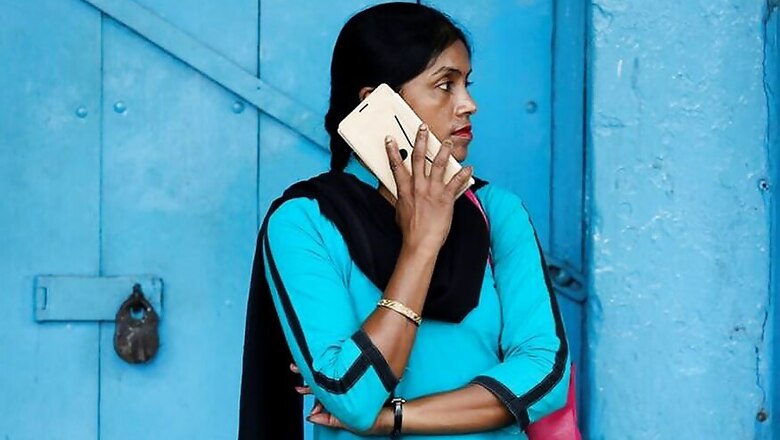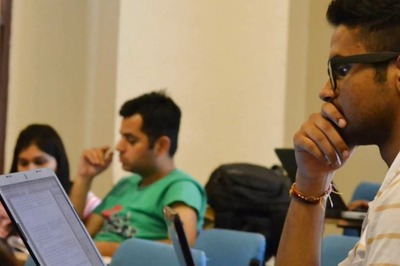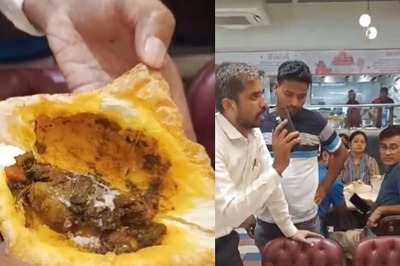
views
New Delhi: The Interconnect User Charge (IUC) must be reduced to zero immediately for the benefit of the customer as well as the industry, top telecom experts said, adding that regulatory decisions have to be in line with this objective.
IUC is a charge paid by a telecom company on whose network a call originates to the company in whose network it ends. It is currently 14 paise/minute and telecom regulator TRAI wants to cut it to under 10paise/minute. It has also submitted an affidavit in the Supreme Court in favour of moving away from IUC to a Bill & Keep system.
Bill & Keep is a modern approach to interconnection charging in which the networks recover their costs only from their own customers rather than from the sending network. Such an arrangement acts to remove the wholesale cost barrier to the retail pricing for off-network calls and has been proven to result in significantly higher levels of calling activity.
"The IUC should be reduced to zero as soon as possible," Rakesh Kumar Upadhyay, a former Chairman and Managing Director of BSNL, told CNBC-TV18. He added that eliminating IUC would speed up the progression from existing 2G/3G networks to IP networks that use 4G. This will help consumers get the benefit of the latest technology.
Sanjay Kapoor, former CEO of Bharti Airtel, felt that reducing IUC will increase international competitiveness for businesses and bring down rates for individuals.
Industry observers also pointed out that now that IP networks and volte (Voice over LTE) has become a reality in India, the arguments for a steeper IUC doesn't wash.
"TRAI has already submitted to the Supreme Court that it will move from IUC to Bill & Keep. With the development of technology it will be difficult to distinguish between voice and data calls. The only solution is for TRAI to move to Bill & Keep and reduce IUC to zero," said RSP Sinha, a former MD of MTNL.
Sinha also exposed the hypocrisy of those arguing for higher IUC charges by recalling that 13 years ago when he ran MTNL, state-run firms wanted the IUC to be hiked to 50 p/m, but the then new private operators (now incumbents) wanted it lowered, saying it was good for consumers and for the development of the market.
"How can those same operators now say it should be increased because the argument they gave was that you are protecting inefficiency?" he asked.
The argument that most telecom revenue for companies comes from voice calls too is under serious pressure because more and more consumers are using over the top (OTT) applications like WhatsApp, Skype, Viber and WeChat as VoIP (voice over internet protocols). In fact, voice over data and Voice over LTE (VOLTE) was slowly becoming the standard in India. This regime is incompatible with IUC. Hence switching to Bill & Keep will not only help telcos gain money to invest in their networks, but also make the latest technology accessible to consumers.
Upadhyay said that the existing telecom companies should have taken early steps towards Volte. "It is enough for data, but the quality of voice calls has really gone down. Anyway, cost recovery has happened for the existing players, so the argument that IUC must be increased to recover cost is something I don't agree with. The Indian telecom sector is moving towards IP networks where the per minute call cost is less than a paisa. Why should consumers suffer because of continuation of old technology? IUC promotes inefficient technology," he said.
Sanjay Kapoor said that telecom sector was going through a transformation. He said that eventually IUC will die down in India, but before it does so there needs to be a shift in Indian telecom towards providing digital services. "In advanced markets revenue streams are divided between data packets and digital services and Indian companies need to move there. Once that happens IUC will die down," he said. Kapoor said that voice is still a prime earning for a lot of incumbents but as packets take over and voice becomes a packet, both parties will share revenue.




















Comments
0 comment